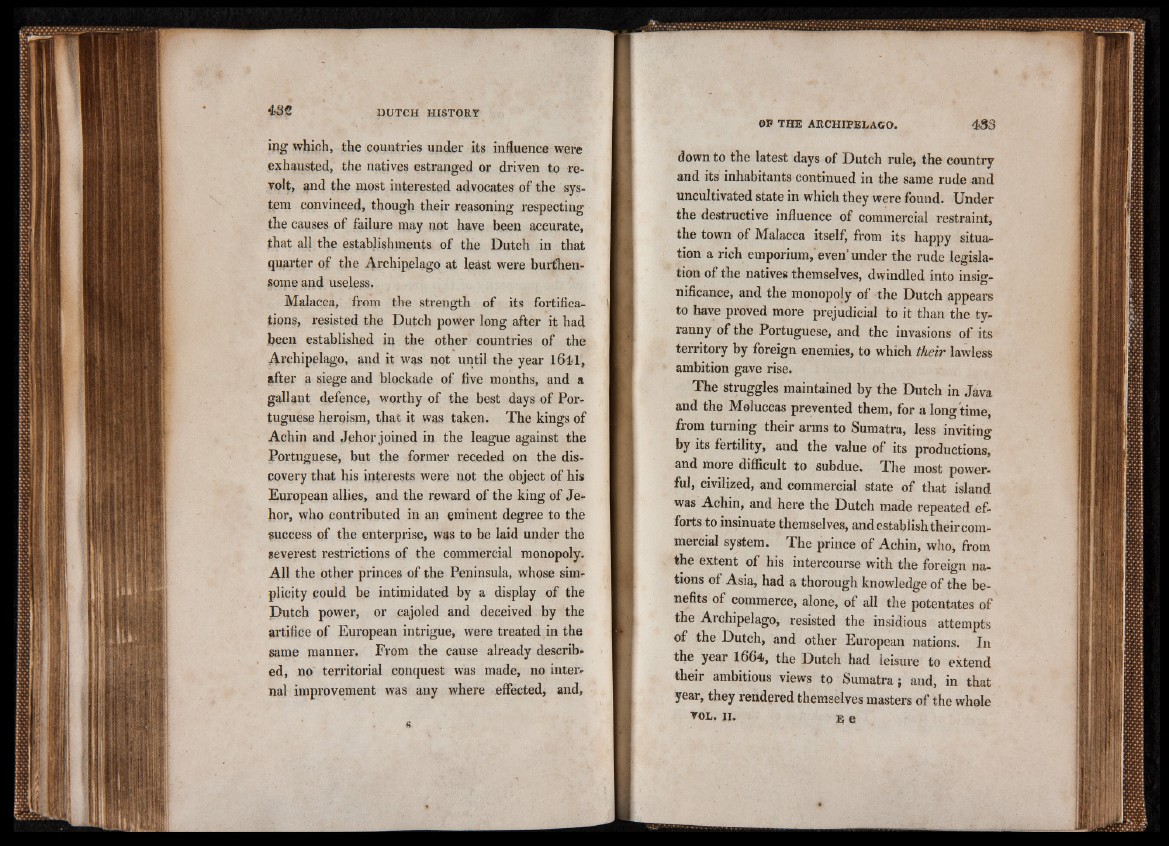
ing which, the countries under its influence were
exhausted, the natives estranged or driven to revolt,
and the most interested advocates' of the system
convinced, though their reasoning respecting
the causes of failure may not have been accurate,
that all the establishments of the Dutch in that
quarter of the Archipelago at least were burthen-
some and useless.
Malacca, from the strength of its fortifications,
resisted the Dutch power long after it had
been established in the other countries of the
Archipelago, and it was not until the year 1641,
after a siege and blockade of five months, and a
gallant defence, worthy of the best days of Portuguese
heroism, that it was taken. The kings of
Achin and Jehor joined in the league against the
Portuguese, but the former receded on the discovery
that his interests were not the object of his
European allies, and the reward of the king of Jehor,
who contributed in an eminent degree to the
success of the enterprise, was to he laid under the
severest restrictions of the commercial monopoly.
All the other princes of the Peninsula, whose simplicity
could be intimidated by a display of the
Dutch power, or cajoled and deceived by the
artifice of European intrigue, were treated in the
same manner. From the cause already described,
no territorial conquest was made, no internal
improvement was any where effected, and,
down to the latest days of Dutch rule, the country
and its inhabitants continued in the same rude and
uncultivated state in which they were found. Under
the destructive influence of commercial restraint,
the town of Malacca itself, from its happy situation
a rich emporium, even'under the rude legislation
of the natives themselves, dwindled into insignificance,
and the monopoly of the Dutch appears
to have proved more prejudicial to it than the tyranny
of the Portuguese, and the invasions of its
territory by foreign enemies, to which their lawless
ambition gave rise.
The struggles maintained by the Dutch in Java
and the Moluccas prevented them, for a long time,
from turning their arms to Sumatra, less inviting
by its fertility, and the value of its productions,
and more difficult to subdue. The most powerful,
civilized, and commercial state of that island
was Achin, and here the Dutch made repeated efforts
to insinuate themselves, and establish their commercial
system. The prince of Achin, who, from
the extent of his intercourse with the foreign nations
of Asia, had a thorough knowledge of the benefits
of commerce, alone, of all the potentates of
the Archipelago* resisted the insidious attempts
of the Dutch, and other European nations. In
the year 1664, the Dutch had leisure to extend
their ambitious views to Sumatra; and, in that
year, they rendered themselves masters of the whole
VOL. II. E e